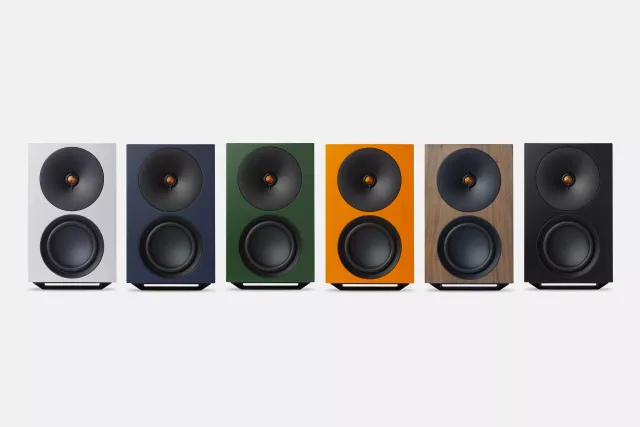Fujifilm’s X-T30 III Is Retro Design, Reloaded Feels
The Fujifilm X-T30 III is a compact mirrorless camera that targets creative independents who value manual control and emotional tone over technical specifications, offering a bridge between casual capture and deliberate storytelling.

The Setup
Fujifilm
Fujifilm X-T30 III turns nostalgia into a design language by focusing on how you connect to it. The compact mirrorless model brings the brand’s analog DNA forward with a new Film Simulation dial, faster autofocus, and a 26-megapixel sensor tuned for both stills and 6.2K video. It keeps the look of a 1980s SLR but adds modern responsiveness, giving creators a reason to reach for a camera again instead of a phone.
The real move here isn’t the specs. It’s how Fujifilm turns nostalgia into a design system that feels current. The brand has built an ecosystem where dials, clicks, and color profiles act like teaching tools, guiding users from automatic capture to authored storytelling. Every control is a lesson in how craft and emotion can coexist. That’s the difference between a camera that records the world and one that helps you interpret it.
The Breakdown
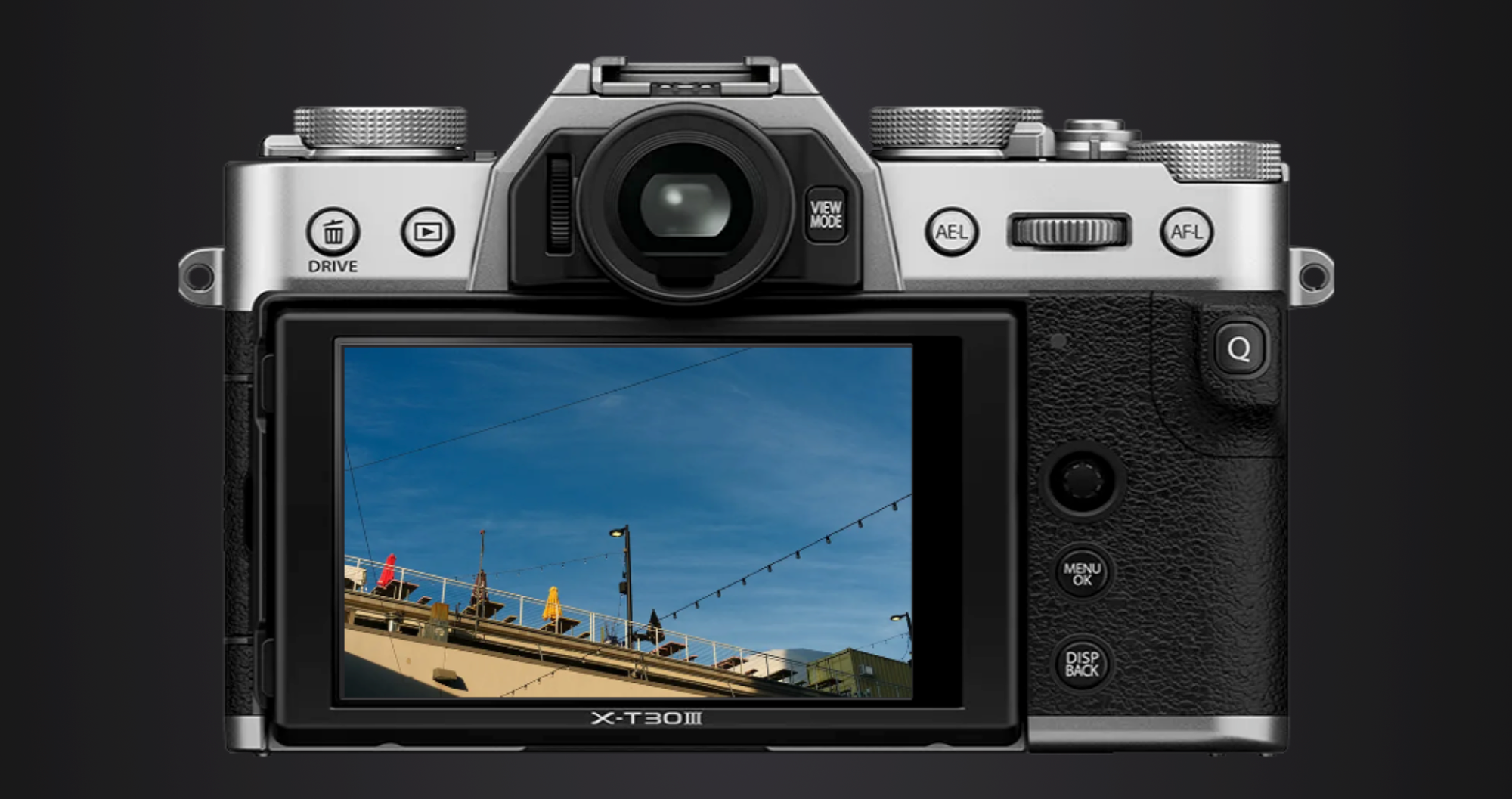
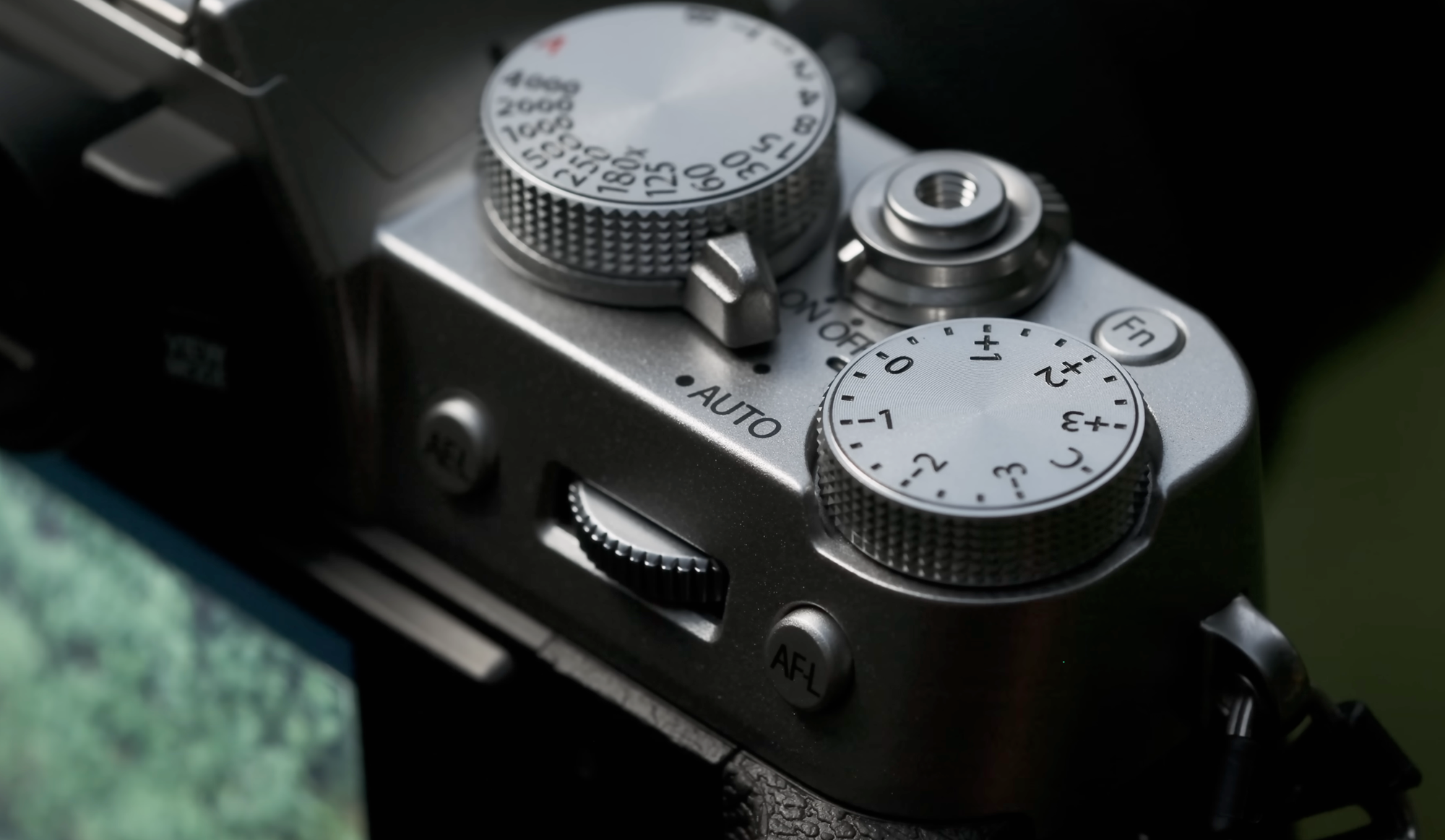
Fujifilm
Brand Positioning and Identity
Fujifilm continues to occupy a rare middle ground between heritage and hybrid. The X-series is less about megapixels and more about meaning, built for people who treat photography as an act of feeling rather than function. The X-T30 III strengthens that identity: compact, mechanical, tactile, and cinematic. It serves as the entry point into the X-Pro and GFX ecosystems, keeping analog spirit alive within digital precision.
Target Segment and Audience
The audience consists of creative independents such as designers, filmmakers, travelers, and enthusiasts who value manual control and emotional tone over technical perfection. They are not always professionals, but they approach their work with a professional mindset. They want something smaller than a DSLR yet more soulful than a smartphone camera. The new wide kit lens and intuitive controls make it ideal for creators upgrading from mobile shooting.
Messaging and Storytelling
The narrative centers on craft in motion. Fujifilm avoids technical boasting and instead celebrates how a camera can translate intention into atmosphere. The new Film Simulation dial and subject-recognition autofocus symbolize this blend: one honors legacy color science while the other ensures that no moment slips away. Together, they present the story of timeless craft meeting modern speed.
Experience and Journey
The X-T30 III is designed as a bridge from casual capture to deliberate storytelling. It guides users from automatic operation to authored creation. Each dial, click, and simulation acts as a lesson in perception, encouraging photographers to see with awareness rather than simply shoot with efficiency.
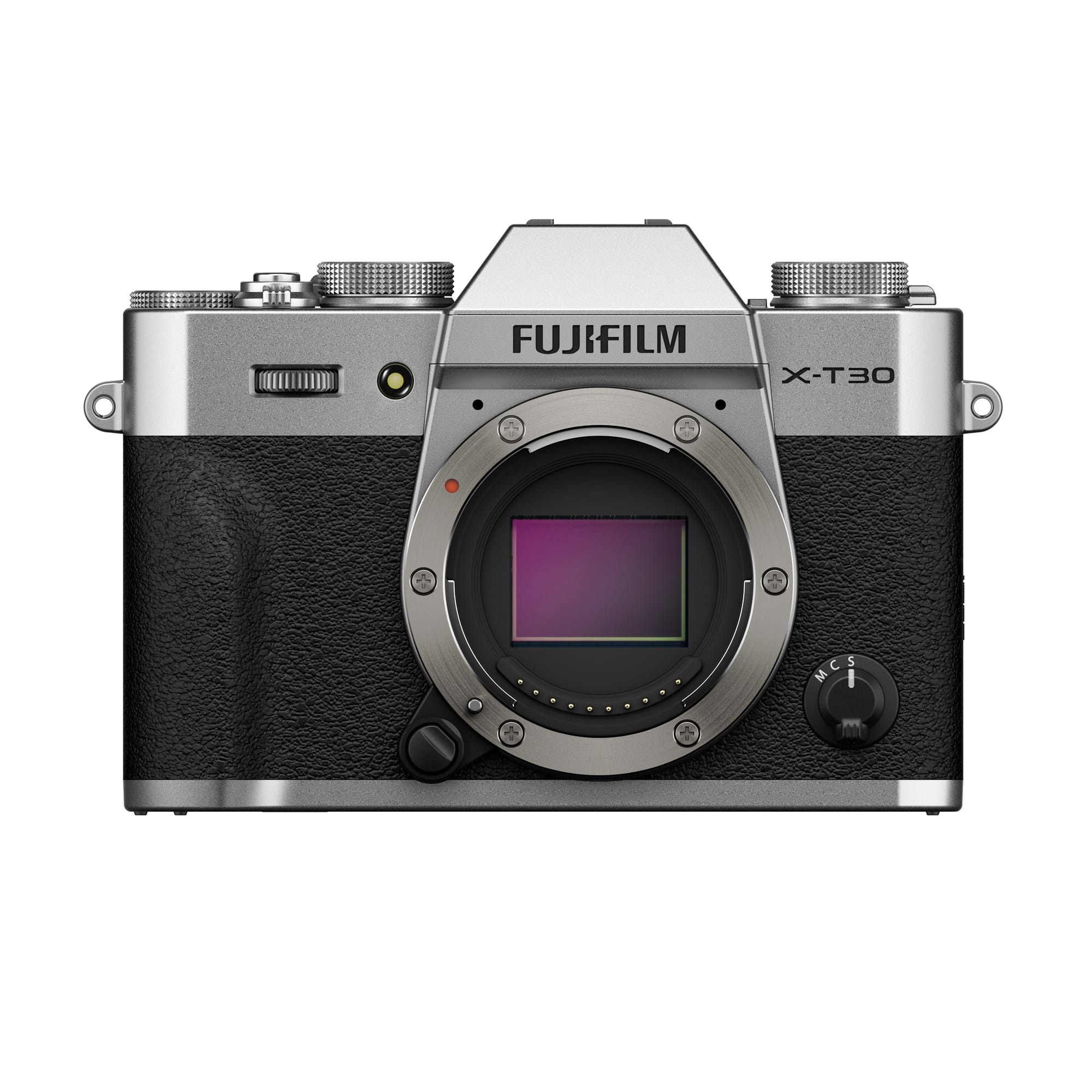
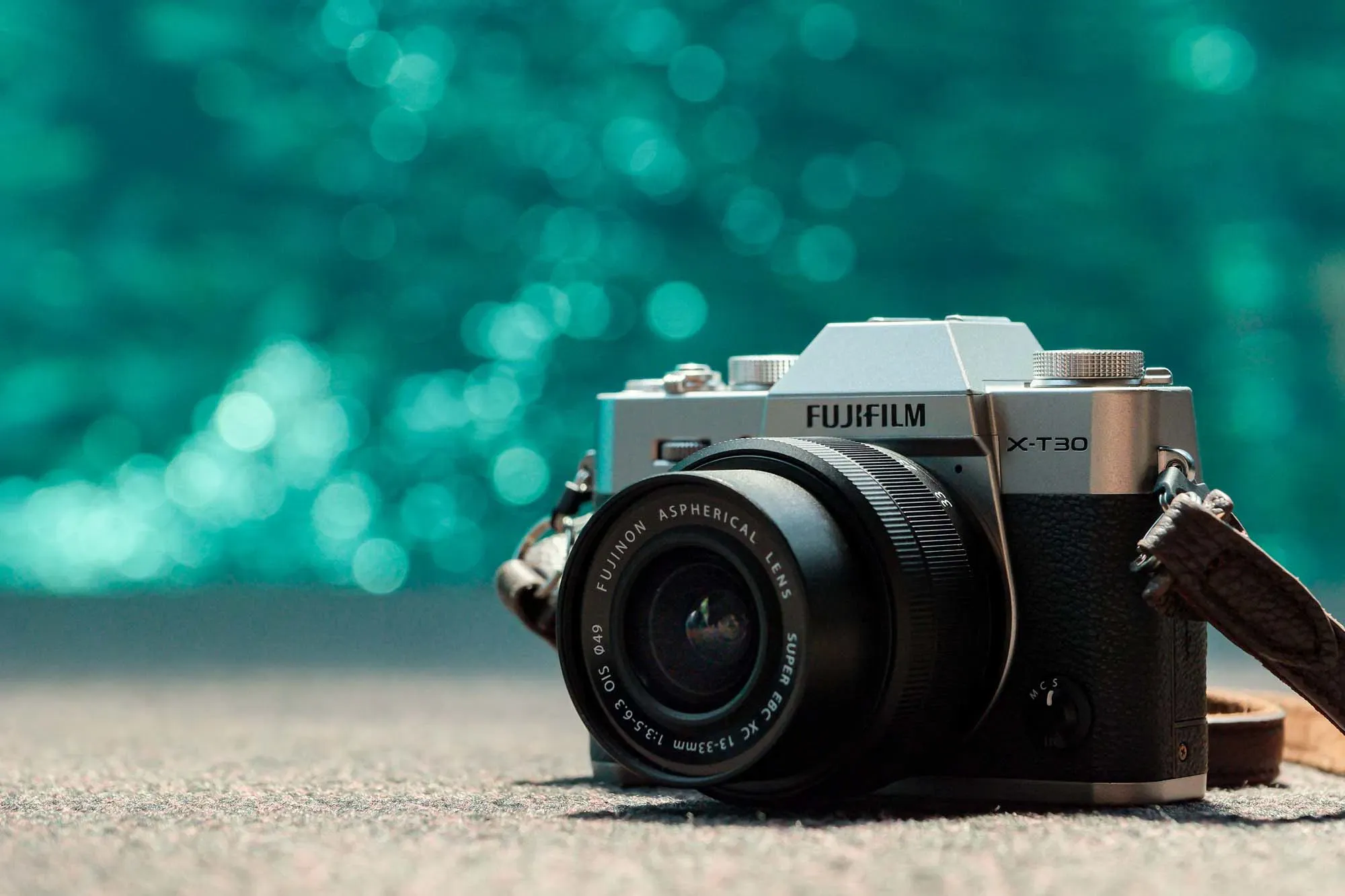
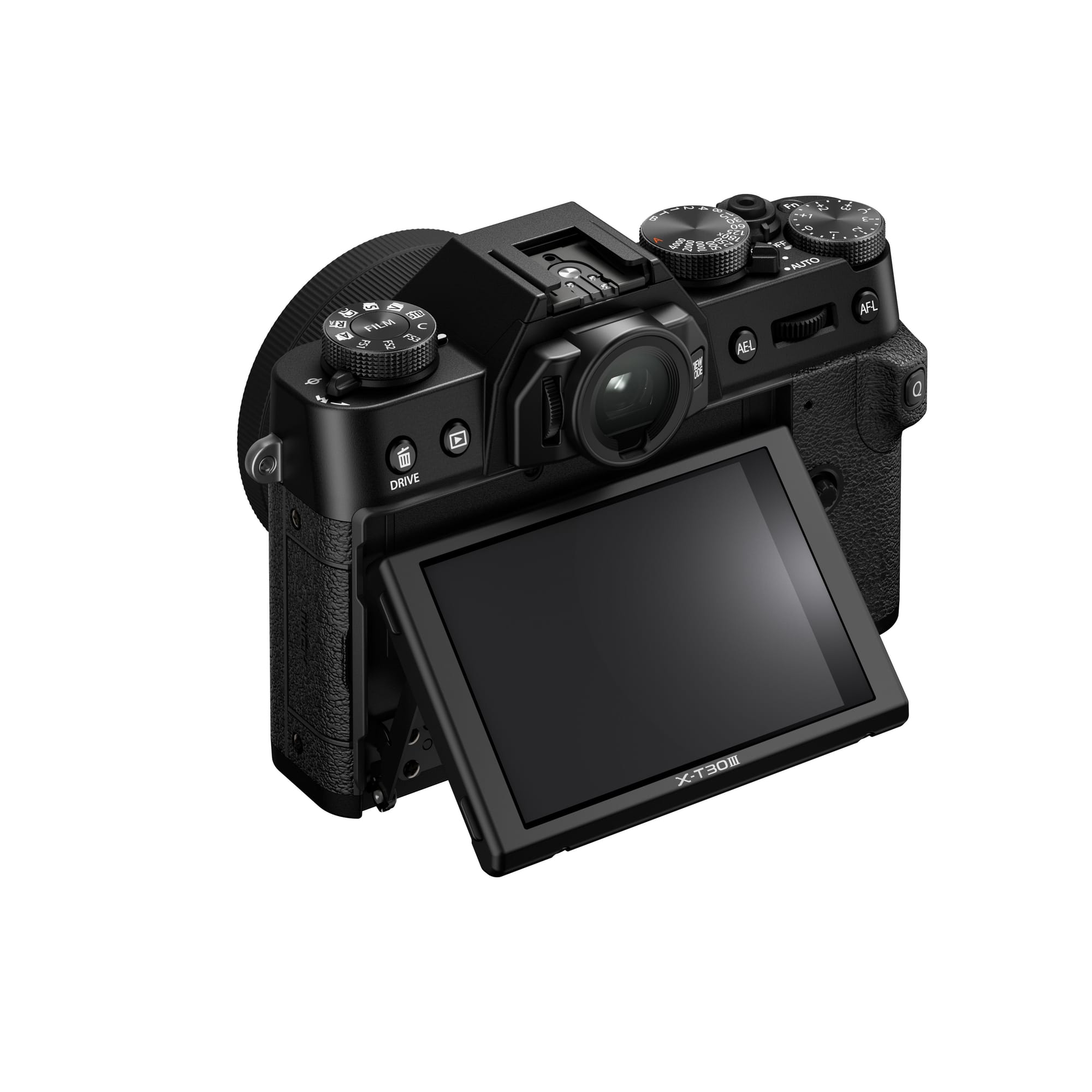
Fujifilm
Community and Culture Insight
This camera belongs to the culture of analog revivalism where film stocks, manual lenses, and retro aesthetics represent authenticity. Fujifilm understands that nostalgia can be a form of rebellion against frictionless digital sameness. The X-T30 III becomes both a creative tool and a cultural signal, asserting that imperfection and process are part of what makes imagery human.
Differentiation and Unique Selling Point
While most competitors sell automation, Fujifilm sells authorship. Its tactile dials, film recipes, and color science create a dialogue between photographer and machine. The new kit lens and autofocus improvements deliver utility, but the emotional advantage lies in how the camera restores the pleasure of control and creative confidence.
Design Language
The X-T30 III speaks through aluminum surfaces, knurled dials, and restrained typography. Its retro silhouette and matte finishes recall mid-century industrial design while blending in contemporary UI and display logic. The Film Simulation dial functions as both aesthetic and narrative design: it turns color choice into a physical interaction. Every design decision reinforces Fujifilm’s belief that touch, sound, and visual form should all serve emotion.
Marketing Pitch
Fujifilm is selling authorship in an age of automation. The X-T30 III embodies the idea that photography is not only about recording the world but interpreting it. The underlying message is that creators do not need to chase constant innovation. What they need are tools that respond to their rhythm and preserve the joy of making images by hand.
Is It A Winning Pitch?
Would you buy a camera for the experience it gives you rather than the features it lists?




